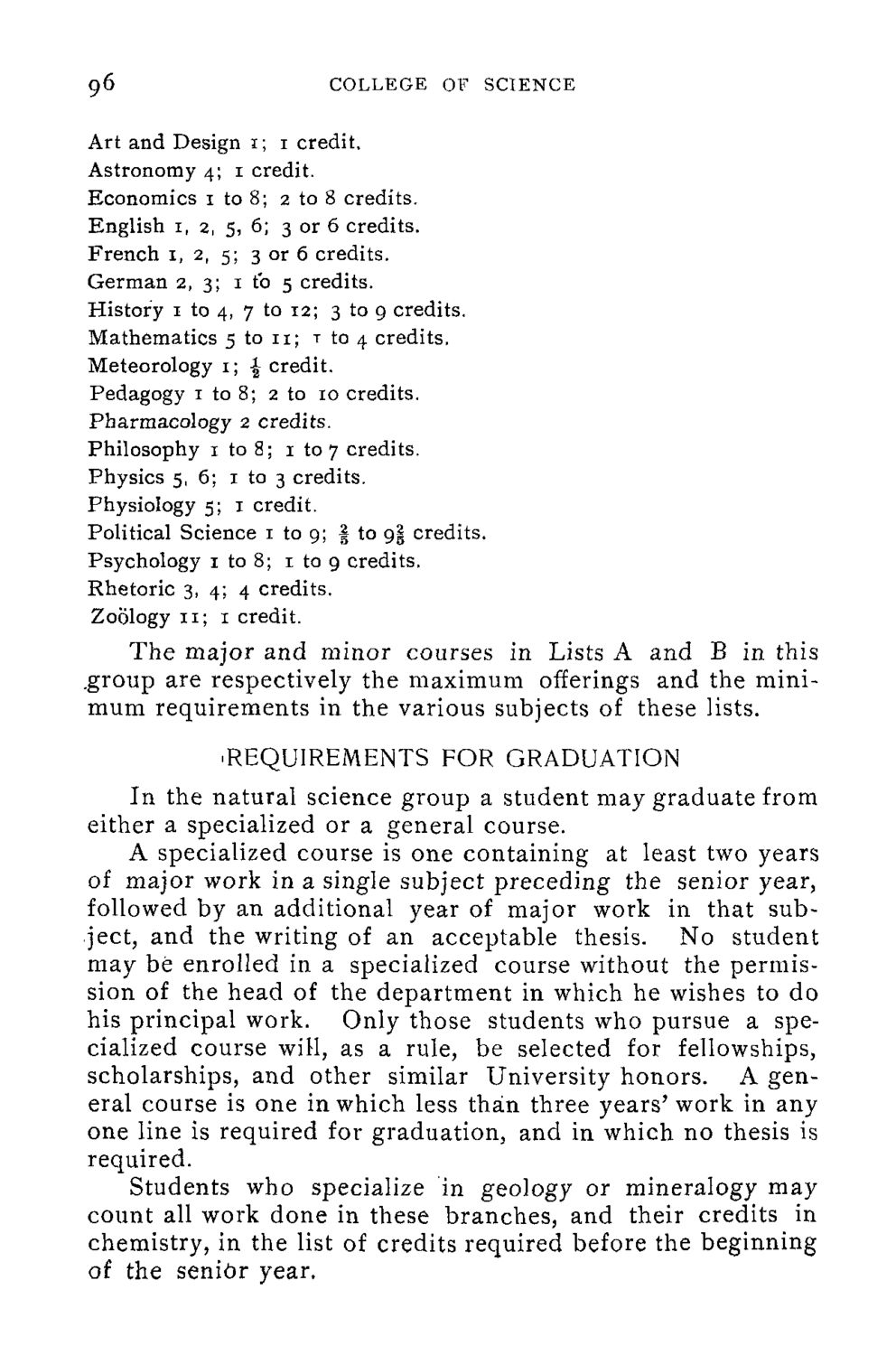| |
| |
Caption: Course Catalog - 1896-1897
This is a reduced-resolution page image for fast online browsing.

EXTRACTED TEXT FROM PAGE:
96 COLLEGE OF SCIENCE Art and Design 1; 1 credit. Astronomy 4; 1 credit. Economics 1 to 8; 2 to 8 credits. English 1, 2, 5, 6; 3 or 6 credits. French 1, 2, 5; 3 or 6 credits. German 2, 3; 1 to 5 credits. History 1 to 4, 7 to 12; 3 to 9 credits. Mathematics 5 to 11; T to 4 credits. Meteorology 1; £ credit. Pedagogy 1 to 8; 2 to 10 credits. Pharmacology 2 credits. Philosophy 1 to 8; 1 to 7 credits. Physics 5, 6; 1 to 3 credits. Physiology 5; 1 credit. Political Science 1 to 9; | to g | credits. Psychology 1 to 8; 1 to 9 credits. Rhetoric 3, 4; 4 credits. Zoology 11; 1 credit. The major and minor courses in Lists A and B in this .group are respectively the maximum offerings and the minimum requirements in the various subjects of these lists. • REQUIREMENTS FOR GRADUATION In the natural science group a student may graduate from either a specialized or a general course. A specialized course is one containing at least two years of major work in a single subject preceding the senior year, followed by an additional year of major work in that subject, and the writing of an acceptable thesis. No student may be enrolled in a specialized course without the permission of the head of the department in which he wishes to do his principal work. Only those students who pursue a specialized course will, as a rule, be selected for fellowships, scholarships, and other similar University honors. A general course is one in which less than three years' work in any one line is required for graduation, and in which no thesis is required. Students who specialize in geology or mineralogy may count all work done in these branches, and their credits in chemistry, in the list of credits required before the beginning of the senior year.
| |